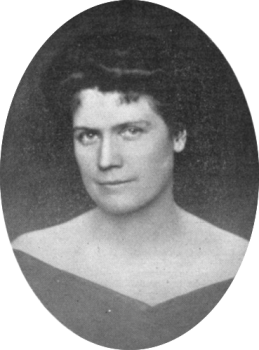
One hundred years ago this week, Grace Kingsley saw something that was rare in 1921: a fantasy film. And my goodness, but she hated it:
If the inhabitants of Mars haven’t anything more thrilling and novel to tell us than the line of chatter handed out by the Martian in A Message from Mars, then I, for one, don’t care a hang whether we ever set up a line of communication with that planet…It doesn’t seem possible that we were ever intrigued in a play of the stage, by such obvious, unimaginative claptrap and sentimental swash as this screen version purveys.
Swash and claptrap: it couldn’t get much worse. Mars was based on Richard Ganthony’s play of the same name, which debuted in London in 1899 and toured throughout the United States in 1903-05. It was a fairly direct steal of Charles Dickens’ plot in A Christmas Carol (it even also took place on Christmas Eve): Horace Parker agrees to finance the invention of a device that communicates with Mars in exchange for getting credit for inventing it. He falls asleep and a messenger from that planet shows him poverty and suffering. He reforms. That is one durable plot!

Other reviewers agreed with Kingsley about the film. Mathew A. Taylor in Motion Picture News wrote, “This screen adaptation of a once popular stage play does not make a picture that moves swiftly enough to command audience attention. It drags along with lukewarm drama and lukewarm comedy and it has an ending as sweet as the final tableaux in a school-children’s Santa Claus play…As a morality picture, and such it is supposed to be, it is not convincing.” Film Daily called it “but mildly interesting entertainment” and concluded “there is very little incident and what there is has been padded at length.” So it really was a stinker. It’s useful to remember that there were just as many dull movies then as there are now – it wasn’t all Keaton and Fairbanks. Because fate and film preservation are arbitrary, A Message from Mars has been preserved by M.G.M., so scholars can see what a critical flop from 1921 looked like.

The film’s star, Bert Lytell, also took a share of the blame. C.S. Sewell in Moving Picture World wrote, “the star’s performance, however, is hardly up to his best work in other productions on account of his tendency to overact which makes the character lose some of its convincing force.” They were probably right, because Film Daily said exactly the same: “Bert Lytell is capable of much better work than he does here. He overacts considerably.” I suspect that Kingsley wanted to be just as direct as they were, but she had to be careful not to offend people she depended on for information, so she wrote:
Poor Bert Lytell! Probably it isn’t his fault that he is seem in miles of footage in this picture, registering nothing but an asinine egotism which fails of interest after the first hundred feet. He does manage a real characterization, of course. He’s too fine an actor to fail in that.
Gee, I wonder who’s fault it was then? Nevertheless, the bad reviews didn’t hurt Lytell’s career. A former stage actor, he’d been staring in films since 1917 and he continued to do so throughout the silent era. He was in a lot of crime movies, playing either crooks, as in The Lone Wolf series or detectives in films like Sherlock Brown(1922) and Steele of the Royal Mounted (1925). After that, he worked in radio and later, television. He was the president of the Actors’ Equity Association (1940-1946) and The Lambs actors’ club (1947-1952). He died in 1954.

However, one cast member emerged from it unscathed. Kingsley mentioned:
The picture serves to reveal a very delightful young actress, Raye Dean, dainty and expressive, of whom we hope to see more.
Sewell concurred, saying “Raye Dean as the girl is not only attractive but acts with great sincerity,” as did Taylor, calling her “an exceptionally appealing leading lady.” Despite her excellent notices, audiences didn’t get more opportunities to see Raye Dean’s work. On May 23, 1921, using her real name, Mildred Bartlett, she married Broadway producer Max Gordon, and he asked her to retire from the screen. His career was enormously successful: his stage productions included The Jazz Singer (1925), The Bandwagon (1931), My Sister Eileen (1940) and Born Yesterday (1946). According to Margaret Case Harriman in Take Them Up Tenderly, the Gordons lived quietly in a hotel in the West Fifties in Manhattan, and “their social excitement is limited to Mrs. Gordon’s bridge parties.” He was so famous that he even got a line in Cole Porter’s “Anything Goes”:
When Rockefeller still can hoard enough money to let Max Gordon produce his shows–
Anything goes!
That is a successful career! He died in 1978 and she in 1992.
“Bert Lytell’s Latest Mildly Interesting,” Film Daily, March 27, 1921, p. 9.
Margaret Case Harriman, Take Them Up Tenderly: A Collection of Profiles, NY: Knopf, 1944.
C.S. Sewell, “A Message from Mars,“ Moving Picture World, April 2, 1921, p. 518.
Matthew A. Taylor, “A Message from Mars,” Motion Picture News, June 18, 1921, p. 3744.
















